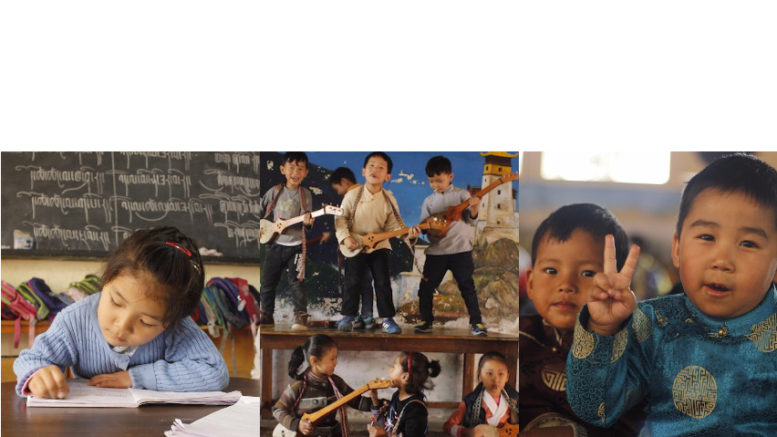By Tenzin Jigme, DIIR Social Media Journalist
Lhakar is a Tibetan word meaning White Wednesday. It is a day celebrated as His Holiness the Dalai Lama’s Soul-Day. It started as a non-cooperation and civil disobedience movement in the aftermath of 2008 uprisings in Tibet. Since then, Tibetans in Tibet and in exile have been celebrating Lhakar by speaking Tibetan language, wearing Tibetan traditional attire and eating traditional Tibetan food. It is a day of being Tibetan, of celebrating the Tibetan identity.
However, this self-reliance Tibetan movement is not just for a day, rather it is for every day. The Sambhota Model School demonstrates steadfast commitment to marking Lhakar. This Wednesday, I visited Sambhota Model Day School situated in the premise of the Central Tibetan Administration.
Through one of the classroom window, I saw tiny hands writing Tibetan script in their notebooks. They all looked smart in Tibetan traditional attire and I was mesmerized to see them fully engaged and excited in learning Tibetan language at such a young age. I moved my camera lens to the classroom walls colorfully decorated with messages written in Tibetan calligraphy. As the teacher went on teaching, the young students appeared to be listening diligently.
At the school’s multi-purpose play ground, students attending their music class played the Tibetan lute (Drayen). Then the mid-day meal bell had the children running in coordinated colors to a relish a vegetarian meal of Tibetan thukpa (noodles) and the ambience exuded Tibetan-ness.
In the midst of colors and laughter I couldn’t help but think: these beautiful and smart children are the future seeds of Tibet and the school is doing its part in imparting knowledge based on Tibetan culture and language. These students will carry it forward and pass the baton to the next new generation of Tibetans.This is how our identity will live on. Thus, Such upbringing and imparting of education rooted in Tibetan culture and values to the new generation of Tibetans does make every day a Lhakar.








